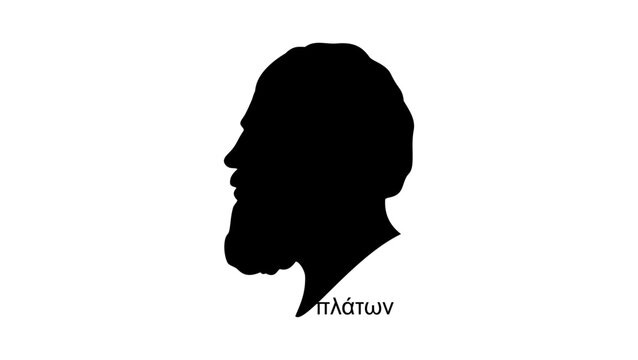The Simple Way to Solve Politics
Sortition
Photo by Louis Renaudineau on Unsplash
How do you solve this problem:
“Only those who do not seek power are qualified to hold it.” - Plato
“Humans are driven by a perpetual and restless desire for power.” - Thomas Hobbes
It is quite simple. Just don’t let people have power if they want it.
Easy to say, but hard to put into practice.
The word for this system of governance is sortition.
What is Sortition?
Much like the word degrowth, most people don’t know about sortition. I didn’t until recently myself, so let’s dive into it.
Sortition is a selection of public officials or jurors using a random choosing system. Sortition chooses leaders through a lottery. The system of sortition works very similarly to the selection of jurors for trials. If you live in a country that was once part of the British Empire, you are probably familiar with such a system.
We can thank the Ancient Greeks for popularizing the use of sortition as the main method of appointing public officials. The Greeks preferred sortition to elections because it weeded out corruption. Those in government could not be easily bought by oligarchs who sponsored their campaigns and would then seek favors.
In the government of Athens, citizens self-selected themselves into the pool of those who could be chosen, and the lottery was conducted using a kleroterion machine. People usually served in the position they were allotted for one year and could not serve in the same position twice.
Was there still corruption? Sure. People are human, and they fail. But the system was not created as one many countries have now, in which corruption is legalized and called lobbying. In Athens, minor corruption occurred, but the oppression of groups out of power and organized fraud weren’t easy to pull off. The random distribution of power combined with short terms for those in power (no career politicians) meant that the system didn’t lend itself to fraud and corruption.
Thought experiment time.
Imagine a world in which policymakers where you live, both local and national, were chosen by sortition. Here is what that would mean:
· No career politicians.
· Political parties would lose power. No one would need to belong to a party to gain office.
· Less extreme politicians. Extremists come from parties that support and reward them.
· More citizens invested in civic life, because more of us would serve.
· Important issues would be addressed. Big business lobbying power would be curbed. Often an issue isn’t addressed (climate change, healthcare, education) because companies benefit from issues not being addressed, or politicians gain from issues not being addressed (something that doesn’t work is easy to get people angry about).
· The will of the people, not big business, would be the primary deciding factor of policy.
· The media would focus on issues, not political celebrities.
· Legal corruption through lobbying would be highly curtailed. Corporations would lose power.
· Policymakers wouldn’t be celebrities; they would just be civil servants. They would be boring, and we would love them for that.
· Media would have to spend less time creating and reporting on political celebrities, and more time doing journalism and reporting, the things they are supposed to do.
· We could even use sortition for the judiciary. This would help in countries where the politicization of the judiciary has become a problem, as where I live in the United States. The pool of people for the highest court in a country would have to be vetted by the law association within a country, such as the American Bar Association in America. No unqualified judge could ever become a federal judge in America under such a system – but they can now.
People would miss politics as entertainment. Not a good enough reason to keep it.
Think about all the stories in the media that you read, or hear about, that are about politics. Some of these stories are about issues, but most of them are about the personalities attached to these issues. The stories are about party leaders and parties; Republicans or Democrats, Tories or Labor, the BJP or INC, PRI, Morena or Pan. The media wants to talk about stories that people will watch. That is almost always going to be about people and not policies. That won’t change with sortition, but if a policymaker is only in office a few years, they won’t be characters that people are familiar with. The media will have to talk about policies more because the people in office for just a year won’t be seen as celebrities.
If each of these countries had a sortition system for picking leaders, there would be no need for these political parties, which today have devolved into patronage machines and legalized corruption organizations due to lobbying.
Instead of spending too much time, money, and virtual ink on political celebrities, we could just draft a cross-section of people from a country. We would ask them to do 2, 4, or 6 years of public service, and then they would go back to being doctors, lawyers, teachers, or farmers like George Washington and Cincinnatus.
Sorry Substack, but a good portion of the newsletters on your platform would go away, as politics is a huge part of the media ecosystem, and Substack is a part of that. Some political newsletters and blogs would continue but focused more on policy than personalities.
Why it won’t happen … yet.
Those in power like the current system we have. It is working for them. Companies can make profits, and they can allocate a little bit of that profit to lobby politicians. Policymakers don’t want to change the system. As Plato, Hobbes, and many others have observed, people like power, and are loathe to give it up once they have it.
The media wants to keep the current system rolling right along. They have built relationships with politicians, and this access gets them the big story, which is power in the media world.
But think of how nice life could be if we just let politics be … boring.
Arguments against.
People will make the following arguments to try to keep the status quo:
1. These people in government won’t be elected, so they won’t be accountable.
But the people in office now are largely unaccountable because they don’t serve the people, they serve the special interests. People want accountability. I think they will see pretty quickly that sortition allows for greater accountability than the system we have now with career politicians and legalized graft.
2. People in government won’t have the expertise they need.
That is already the case now. In the United States, most of those in Congress are either career politicians, business leaders, bankers, or lawyers. Most other professions are not represented. If we had sortition, we would have more engineers, more scientists, more doctors, more farmers, more teachers. With sortition, you would have greater representation by occupation, class, geographic region, and about any other metric you could imagine. Sortition is a better system because it brings in people from all corners of society.
3. People in government wouldn’t have the institutional knowledge needed.
Joe Biden, the US president has spent 50 years in politics. If we had sortition, nearly all of those years would have been taken up by people who were not him, and would have brought fresh insights to the political discourse. Fifty years is an obscene number of years to be in power, even if most of it was spent in the lower levels of power in Washington. Most corporations have leaders that serve for a few years and then move on. They seem to be doing fine. Politics can adjust accordingly. There are plenty of permanent staff and civil servants, consultants, and academics that our current leaders already lean on when they need help. I would gladly trade a little less institutional knowledge for a lot less legal corruption.
This is not a Utopian fantasy.
You might say, “This will never happen.”
But it already has.
Citizen assemblies have been set up in countries around the world to address issues and even propose solutions to societal problems. Citizen assemblies are the gateway drug to sortition. But that is a story for another day. Next Monday to be precise.





Career politicians are the bane and downfall of what was the concept of our "democracy".
Washington knew it, Jefferson knew it as did most of the original founders.
We now live in a highly technological society not present in the 1700s. The Franklin stove and bifocals were the high point of technology. In our political system today we have politicians who only know politics which has become nothing more than how to get reelected. The concept of "civic duty" which is what politics is really about has long been forgotten. It extends all the way down in government through the bureaucracy to government workers waiting for retirement after 20 years. Something largely denied to those in private companies. The government is now a corporation itself. (Thanks to Reagan,Reaganomics and privatization.) The government was never meant to be run as a for profit business. Citizens today are not even on the board of directors in this corporate "democracy". We have no vote or say. We are shareholders watching the corporation being bankrupted for the benefit of the few.
Citizen Assemblies are what is needed to correct the current disaster our government has become. Citizen Assemblies are essentially a government within the government. My fear is that they will be subverted by the government as being radical and the new "threat to democracy" by the corp owned media. The pen is indeed mightier than the sword, and the pen is now in the wrong hands. The right to protest has been completely taken away from taken away from us. The right to protest is a last resort. Massive numbers of arrests by militarized police quickly and effectively quell any resistance.
Sortition would go a long way to solving our political systems.problems. Had term limits alone been imposed generations ago, we would probably not be in the situation we are now. My only concern with this concept is the radicalized and extremist society we now live in. What would we end up with for individuals running the country? Would random selection work today?. It might make more sense to divide into categories like science, social, financial legal etc and then choose randomly. We no longer live in a world that the Greeks lived in but the basic concept is sound. The Greeks did not face climate change, ecocide or possess nuclear weapons. And didn't the Greeks conceptualize democracy?
“People in government won’t have the expertise they need.”
More kakistocratic than this?
Ohhh Boy!!! Jesus, take the wheel and I’m an atheist!